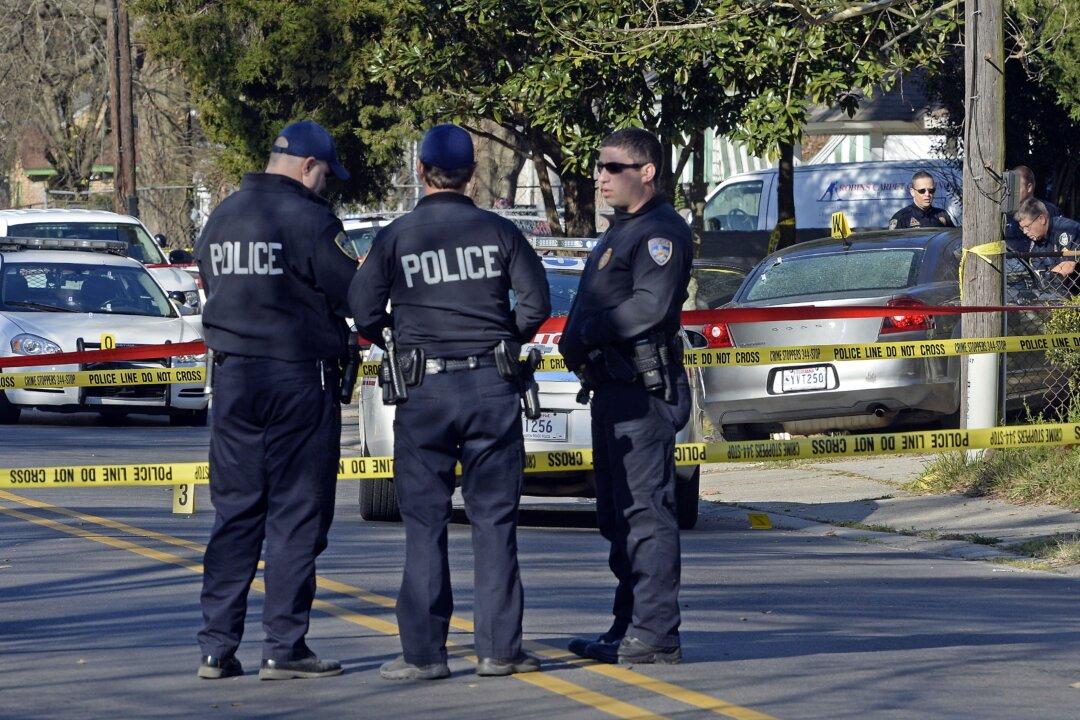A new Louisiana law gives on-duty police officers a 25-foot buffer zone that bystanders cannot cross.
The law, signed by Gov. Jeff Landry on May 28, makes it a misdemeanor to be within 25 feet of a police officer who is “lawfully engaged in the execution of his official duties” if said officer has “ordered the person to stop approaching or retreat.”





